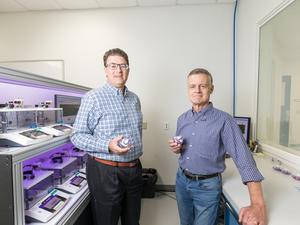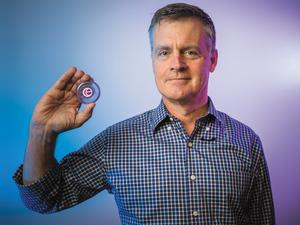Ry Walker didn’t need any extra motivation to build out his tech startup in Cincinnati, but he was told at least once during Astronomer’s seven-year existence that it was the type of company that would never make it here.
The proclamation, from a Chicago venture capitalist, seemed predicated on the belief that cities like Cincinnati lack expertise needed to scale fast. Venture capital is harder to come by. Indeed, companies like this historically live on the coasts.
Ultimately, it was the sports equivalent of locker room or bulletin board fodder. For Walker, a snub so ludicrous it lit a small fire inside. “It definitely got to me,” he said. “This was such a big market we couldn’t not take a piece (of it.)”
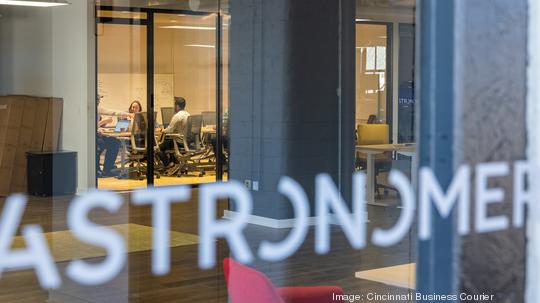
Fast forward, and Astronomer’s outlook is at an all-time high, fueled by a March $213 million Series C fundraising round, a near-record for the region. It likely catapults the Over-the-Rhine company to unicorn status, one of the rarest designations in the startup world, reserved for companies with $1 billion valuations or more. It’s a distinction to which no firm in the region has yet to lay claim.
But that Chicagoan’s prediction? It almost came true. In 2018, Astronomer was hanging by a thread. The company, while growing, was essentially out of money and not in a great position to raise more. It may not have survived if leaders like current CEO Joe Otto and others hadn’t written personal checks to keep it afloat.
A new path forward took curiosity, agility and grit.
“People ask me all the time, ‘What did you see back then?’ I knew it could be a valuable company, but I had no clue how quickly,” Otto said. “It’s a story that’s pure Cincinnati.”
Three firms on a rocketship
Indeed, if one were to write the book on the city’s startup ecosystem, this is where the story would pick up steam. Astronomer’s leap comes at an interesting juncture for Cincinnati, with not just one, but three emerging unicorn companies. Both medical device maker Enable Injections and vertical farmer 80 Acres have raised nine-figure rounds in recent months.
No one in this trio of CEOs, however, wants to even whisper the word. Many in the biz consider it a vanity metric — its very definition mangled in recent years as its rarity waned.
It could be a simple case of Midwest modesty, or maybe they’re chasing something even bigger. Plenty of leaders will have you believe the latter. Could Cincinnati have a decacorn in the making? Let’s start with Astronomer.
Billion-dollar businesses
Astronomer’s story can be told in two distinct phases. The startup, founded in 2015, didn’t really become Astronomer until 2018, when it spun off its data analytics business into a new company called MetaRouter.
Today, Astronomer is laser focused on developing modern data orchestration tools. It brings information together from multiple sources, synthesizes it and prepares it for analysis. The whole process is powered by Apache Airflow, a popular open-source platform.
Managing data is an increasing problem, for startups and big firms alike, Otto said. A company like Procter & Gamble, for example, isn’t going to grow its value because it knows how to run Airflow. “So (they) outsource that to a company like us who are the experts, and we can do it better, faster, cheaper,” he said.
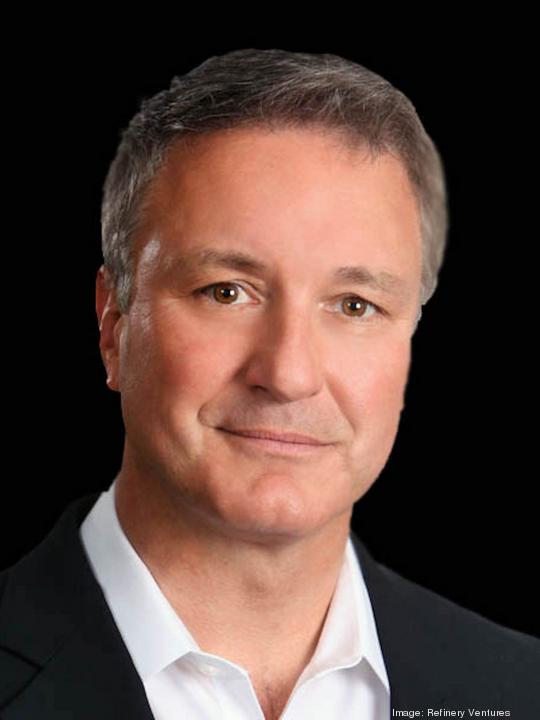
Otto, whose previous experience includes California-based Greenplum and Alpine Data, joined Astronomer as CEO in 2018 at that critical juncture. Both Walker and Tim Schigel (a partner at Over-the-Rhine-based Refinery Ventures, which invested in Astronomer) said the company craved next-level leadership.
The idea plays right into Refinery’s theory: The region has plenty of top-tier talent and ideas, just not enough people who know how to scale companies. “Astronomer may have gotten stuck. It may not have gone anywhere if the right mix of leadership and investors (hadn’t) come together,” Schigel said.
Otto focused on hiring, among other aspects of the business. “Very quickly it wasn’t just Joe and Ry anymore. He started bringing in other people from his network,” Schigel said. The company became more integrated with Airflow. Astronomer engineers now represent 16 of the top 25 all-time contributors to the platform, thanks to recruitment efforts.
Schigel also applauds the company’s low profile. Headline-making valuations can be a double-edged sword and tempering the company’s valuation keeps its 260 employees focused, he said.
Otto chose not to publicly disclose Astronomer’s previous Series A or Series B funding rounds. He said he didn’t even want to announce the Series C. “It’s like celebrating you won in the first quarter of a game.”
But the deal helped land a key acquisition in California-based Datakin, a data lineage tool developer. Data lineage involves tracking the origin of data, what happens to it and where it moves over time. Otto called the addition a “game changer.” It gives Astronomer’s product a bit more complexity.
“That’s going to work hand-in-glove with what we’re doing,” Otto said. “It’s the bigger part of the story.
“We believe this is a billion-dollar business. I spent my entire career on the West Coast, and it’s crazy I found this most unique business opportunity right underneath my nose here in Cincinnati.”
Walker believes Astronomer is likely 1% built out, which seems crazy considering its growth potential. While he is the only one to put a valuation out into the universe — he called Astronomer a “legit Cincinnati-founded unicorn” on Twitter the day of the Series C raise – it came with a caveat.
“It doesn’t mean anything,” he said. “This is such a hard thing to do in the Midwest, and we’ve made it to the big leagues. I wanted people to at least know that. Now we have to focus on execution.”
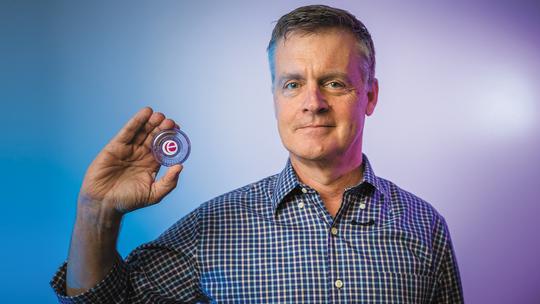
Generational change
Mike Hooven, CEO of Evendale-based Enable Injections, also fits Schigel’s ethos that it takes an experienced entrepreneur to scale a hypergrowth company. In 2000, Hooven founded now-publicly traded Atricure, a Mason-based medical device maker known for its focus on atrial fibrillation. Today, Atricure employs more than 700 with a nearly $2.8 billion market cap.
Hooven sees Enable as even bigger.
Like Otto, he grimaces at the term unicorn. “It’s a vanity metric,” Hooven quipped. Instead, he’d rather talk about what the company’s device could do for patients, and the high-tech jobs that could “be continuously created” once it’s adopted.
Enable’s EnFuse, a palm-sized wearable disk, offers an alternative to IV administration, which is set to become a $1 trillion market by 2026, Hooven said. EnFuse delivers a drug more quickly, and a patient can complete treatment at home versus at a clinic, slashing costs. A recent study showed the switch from a traditional IV to its device saved the average patient $1,000 per month.
Enable expects Food and Drug Administration approval in the next year or two.
“This is one of the biggest disruptions I’ve ever seen in health care,” Hooven said.
To date, Enable has raised $400 million in funding, including a $215 million Series C in January (that’s $2 million more than Astronomer’s raise). In March, Enable was named in a $330 million collaboration between drugmaker Sanofi and global investment group Blackstone Life Sciences. The EnFuse will be used to deliver Sanofi’s drug Sarclisa, a treatment for multiple myeloma, a cancer of the plasma cells.
The Blackstone backing puts its total related funding well past the $700 million mark. It’s also Enable’s first publicly announced drug partnership. “We’re looking at executing major deals this year, doing an IPO (initial public offering) and building this into a multibillion-dollar business,” Hooven said.

While unicorn status is a signpost, or an overt indicator a company is on the right track, a better measure is the fact that Enable is now funded to the point where its team can take it to the “promised land,” said Bill Baumel, managing director of Columbus-based Ohio Innovation Fund. Enable was one of Ohio Innovation Fund’s first investments, after Baumel cold-called Hooven, shortly after launching the portfolio in 2016.
Baumel wishes he would have invested more. Enable, he said, is best positioned to become Ohio’s first decacorn, or startup valued at $10 billion or more.
This somewhat new designation is exceedingly rare. Per data bookkeeper PitchBook, the number of unicorns across the nation stands at 1,335. But, as of February, the number of decacorns was 55.
While Enable’s product will “fundamentally transform how drugs are delivered,” Baumel also said its team, customer base and intellectual property present huge barriers to entry for competitors. The company currently employs 170, with 20-plus patents and counting. It could take at least a “half a decade,” if not more, for a similar device maker to try to enter the market.
“This company is in a class that’s elite. It’s going to be generationally transformative for the area.”
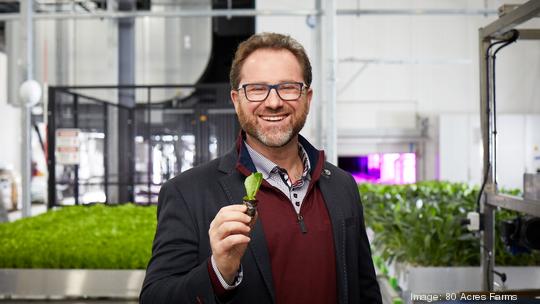
Vertical growth
Not one to be left behind, 80 Acres Farms CEO Mike Zelkind also alluded to decacorn status when asked in recent weeks about his company’s valuation. 80 Acres, a vertical farming startup headquartered in Hamilton, closed a $160 million Series B in August, putting its total funding at $250 million.
It's poised for expeditious growth, with a new 200,000-square-foot farm planned in Northern Kentucky and another pending in Atlanta. Both will be three to four times larger than its flagship farm in Butler County.
Zelkind has repeatedly declined to disclose valuation, but said he’s competitively keeping pace. “None of that stuff really matters as we measure ourselves by the quality of our product and how much our customers love it,” he said. “I will say, we have a lot of work to do before we become a decacorn.”



